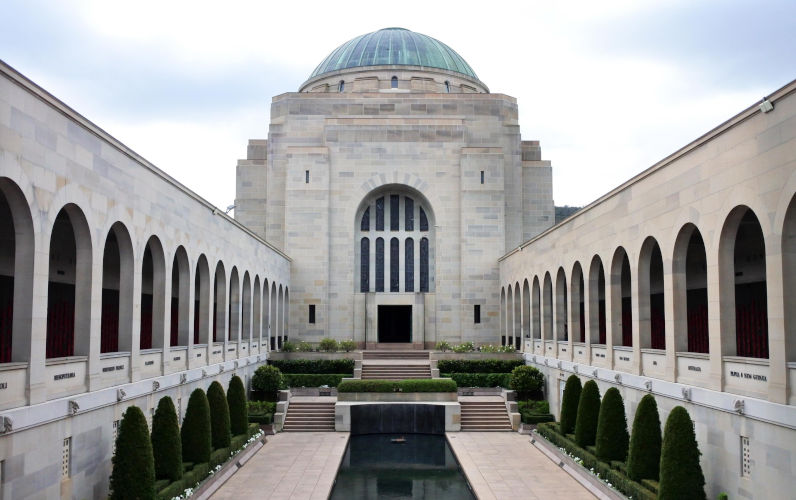Greg Melick, the AWM and Frontier Wars
June 21, 2023
Major General Greg Melick, a member of the Australian War Memorial Council, would be in a very interesting position in any public company committed to best practice corporate governance principles.
Melick is RSL President and a vocal opponent of any representation of the Frontier Wars in the Australian War Memorial. Only people who served in uniform should be honoured at the AWM he argues thereby allegedly ruling out Indigenous warriors.
Yet there is a problem. The immediate past and current Council Chair have expressed support for representation. The staff working on new displays in the extended Memorial the bit being built to replace the area vandalised by the AWM have confirmed that Frontier Wars will be represented although there is much argument about the meagre recognition they are offering.
But Melick disagrees and is publicly arguing against any representation including in a recent interview with The Canberra Times.
According to widely accepted corporate governance principles you can disagree strongly with the other members of your Board and argue the case at least up until the board makes a decision when the accepted situation is that you go along with the majority.
If you disagree you can continue to push your case internally and seek a review particularly if new information becomes available. But if you decide to disagree publicly the generally accepted position is that you should resign and continue your objections from outside the tent or in this case the trench.
Melick disagrees and has made a number of public statements over the years about the Frontier Wars and, as the issue is coming to a head, has made more. Yet there is no sign of a resignation. Do normal corporate governance principles apply to the AWM and other Government bodies? Has the Council given him permission to freelance on the issue? Does he believe he has the right to speak out irrespective of other views? We dont know.
Another perspective on this is whether the AWM Council should, as a public authority, disclose what the Council discusses. In view of open government principles it would be very desirable for the AWM to disclose minutes of its meetings given that it is largely a publicly funded body notwithstanding donations from armament manufactures and some other donors.
Then it wouldnt matter what Melick said if it was consistent with the public record of his position within the Council.
Yet another issue is that as RSL President he could argue he is just representing the views of veterans. Indeed, in 2022 (21/10) he told The Australian I can tell you that major feature of frontier wars will piss off the majority of Australias 600,000 veterans.
This raises the question of does Melick actually represent veterans? While it is customary for the RSLs President to be on the Council he is not there ex-officio as are the ADF service chiefs. As such, according to normal corporate governance principles, once you are on a board you are not representing a sectional interest but rather the organisation as a whole. He is simply an appointee courtesy of the Governor-in-Council without any specific right to be there as a representative of any particular group.
The situation is further complicated by his 2021 AWM declaration of interests where he says he has No ability to control strategic direction or influence policies/operations of RSL Australia.
There is also a precedent for his situation. In 2012, the Council of the War Memorial had to consider whether proposed rival war memorials in Anzac Parade were compatible with its mission. Council member, RADM Ken Doolan, was also National President of RSL and said in a Council meeting that RSL had a policy of never opposing plans for new war memorials.
Another Council member informed him that he was not entitled to just follow RSL policy but to make a decision as a Council member which he did against RSL wishes.
Then there is the broader question of who and what the RSL are representing if at all? After the Second World War many veterans wore the returned service badge they were given although more recent veterans, such as the writer, stuck theirs in a drawer somewhere and have never worn it.
Many of the early generation also joined their local RSL. But today the RSL represents only a minority of veterans. Many of them have not joined because they regard the RSL as an ineffective lobby group easily duchessed by governments. Others just cant be bothered.
Others have moral objections to the RSLs proliferating banks of poker machines in their clubs. Moreover, many know that all the money lost at the clubs doesnt go to veterans and only a small percentage does. Melick has, in this respect, supported the proposed NSW cashless card pokies system and has said he would prefer RSL clubs not to have gaming operations.
Major General Melicks is a veteran of climbing the ranks of the Reserve from being an NCO to his current exalted position. Photos of him display an array of medals indicating he must have served overseas at some time but he doesnt mention that service in his biography on the AWM website.
Thats possibly understandable. For instance, I and many of my veteran friends, dont make a fuss about being a veteran. The only time we raise it is when it comes to matters about veterans affairs where we need to cite the experience to demonstrate our credentials.
But, whatever the situation, it would be useful if Major General Melick told us more about his credentials in assessing what the Frontier Wars were about and why they ought not be commemorated at the AWM; and, the evidence for his claim about what the 600,000 veterans Australias many wars have created think.
Noel Turnbull served in Vietnam as an artillery officer. He is one of the co-founders of the Defending Country Memorial Project Inc.

